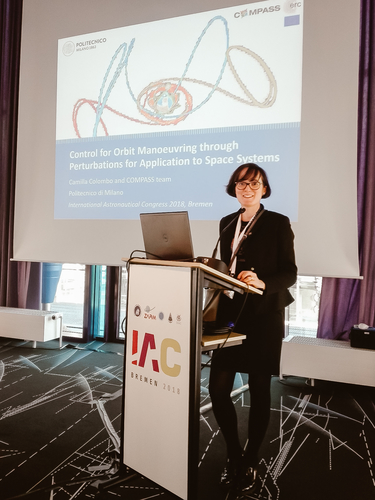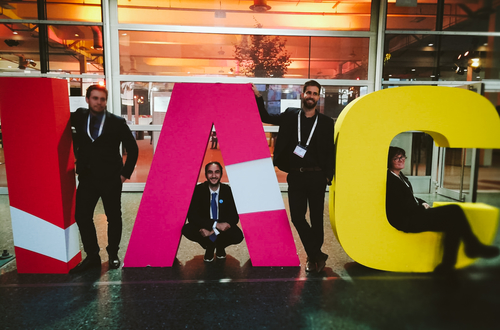The COMPASS team is taking part to the 69th International Astronautical Congress in Bremen, Germany. Camilla Colombo, Davide Menzio, Stefan Frey and Matteo Romano are attending this year’s IAC to present their works in front of the thousands of researchers from the international community that will be in Bremen from the 1st to the 5th of October.
Camilla Colombo is presenting the paper “Effects of passive de-orbiting through drag and solar sails and electrodynamic tethers on the space debris environment” in the Modelling and Risk Analysis session on Tuesday 2nd, explaining how the use of de-orbiting technologies like sails or tethers can affect the future debris population around the Earth, by assessing the collision risk related to de-orbiting techniques and computing collision avoidance manoeuvres for sails and tethers.

Stefan Frey is presenting the paper “Evolution of Fragmentation Cloud in Highly Eccentric Earth Orbits through Continuum Modelling” in the Orbital Safety and Optimal Operations in an Increasingly Congested Environment session on Thursday 4th, where fragment clouds in HEOs are modelled as a continuum, to provide faster and more accurate propagations of space debris.
Matteo Romano is presenting the paper “Efficient planetary protection analysis for interplanetary missions” in the Solar System Exploration session on Thursday 4th, showing the performance of the line sampling method applied to planetary protection analyses with respect to standard Monte Carlo simulations.
Davide Menzio is presenting the paper “Adapted syzygy functions for the preliminary design of multiple gravity assisted trajectories”, in the Mission Design, Operations & Optimization session on Friday 5th, with the goal of modifying the syzygy function to provide quick estimates of the possible planet configurations for the preliminary design of suboptimal Multiple Gravity Assist trajectories.

